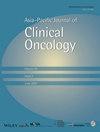What do Australians affected by cancer think about oncology researchers sharing research data? A cross-sectional survey
Abstract
Aim
Previous research has shown patients and the public in Australia generally support medical researchers in making de-identified research data available to other scientists. However, this research has focussed on certain types of data and recipients. We surveyed Australians affected by cancer to characterize their attitudes toward the sharing of research data with multiple third parties, including the public.
Methods
A short, anonymous online survey of Australians with a previous diagnosis of cancer was advertised between October 27, 2022, and February 27, 2023. Quantitative responses were analyzed with descriptive statistics. Free-text responses were coded deductively and summarised using content analysis.
Results
In total, 551 respondents contributed data to the survey. There was strong support for cancer researchers sharing non-human and de-identified human research data with clinicians (90% and 95%, respectively) and non-profit researchers (both 94%). However, fewer participants supported sharing data with for-profit researchers (both 64%) or publicly (both 61%). When asked if they would hypothetically consent to researchers at their treatment location using and sharing their de-identified data publicly, only half agreed. In contrast, after being shown a visual representation of the de-identified survey data, 80% of respondents supported sharing it publicly.
Conclusion
Australians affected by cancer support the sharing of research data, particularly with clinicians and non-profit researchers. Our results also imply that visualization of the data to be shared may enhance support for making it publicly available. These results should help alleviate any concerns about research participants’ attitudes toward data sharing, as well as boost researchers’ motivation for sharing.


 求助内容:
求助内容: 应助结果提醒方式:
应助结果提醒方式:


